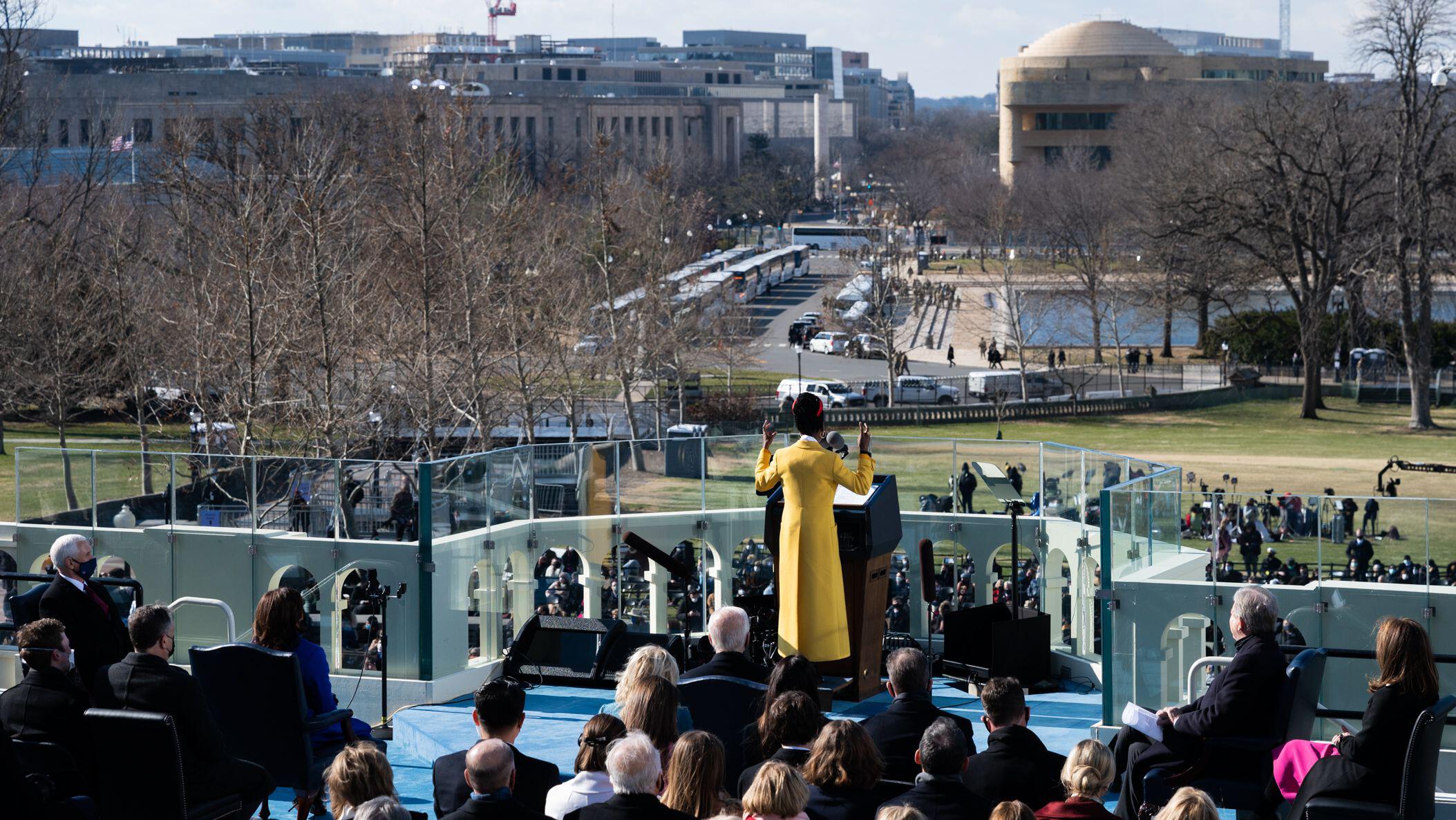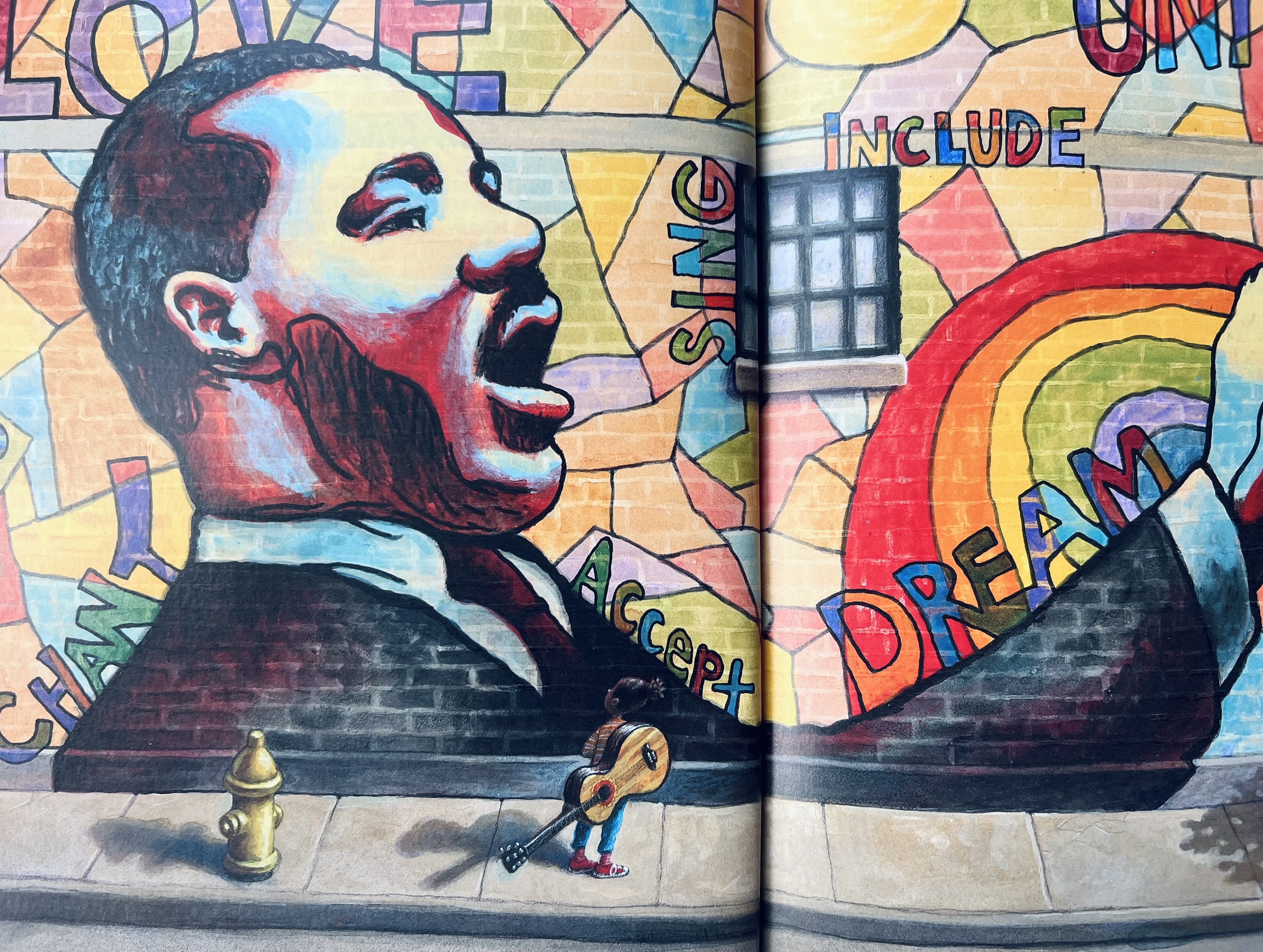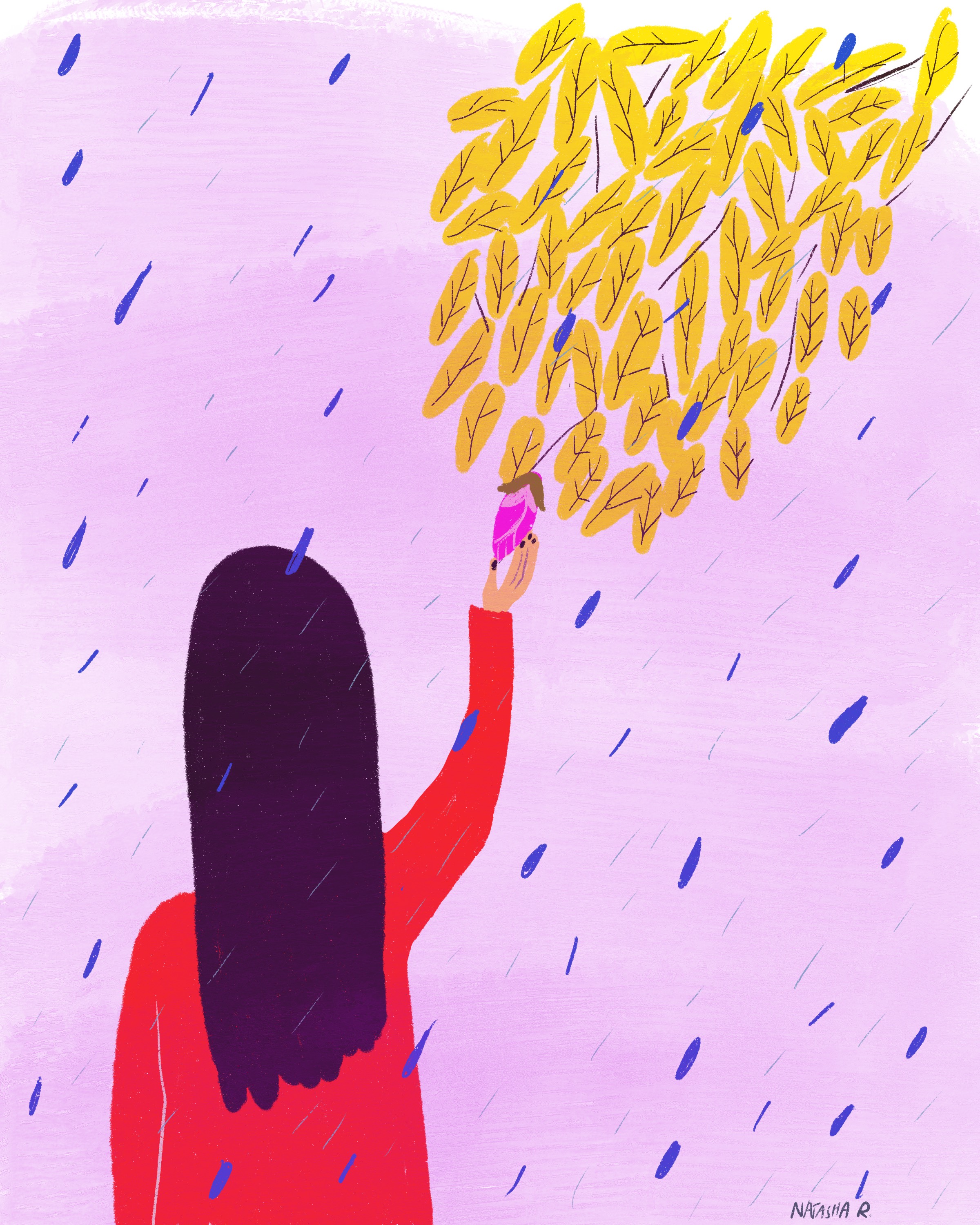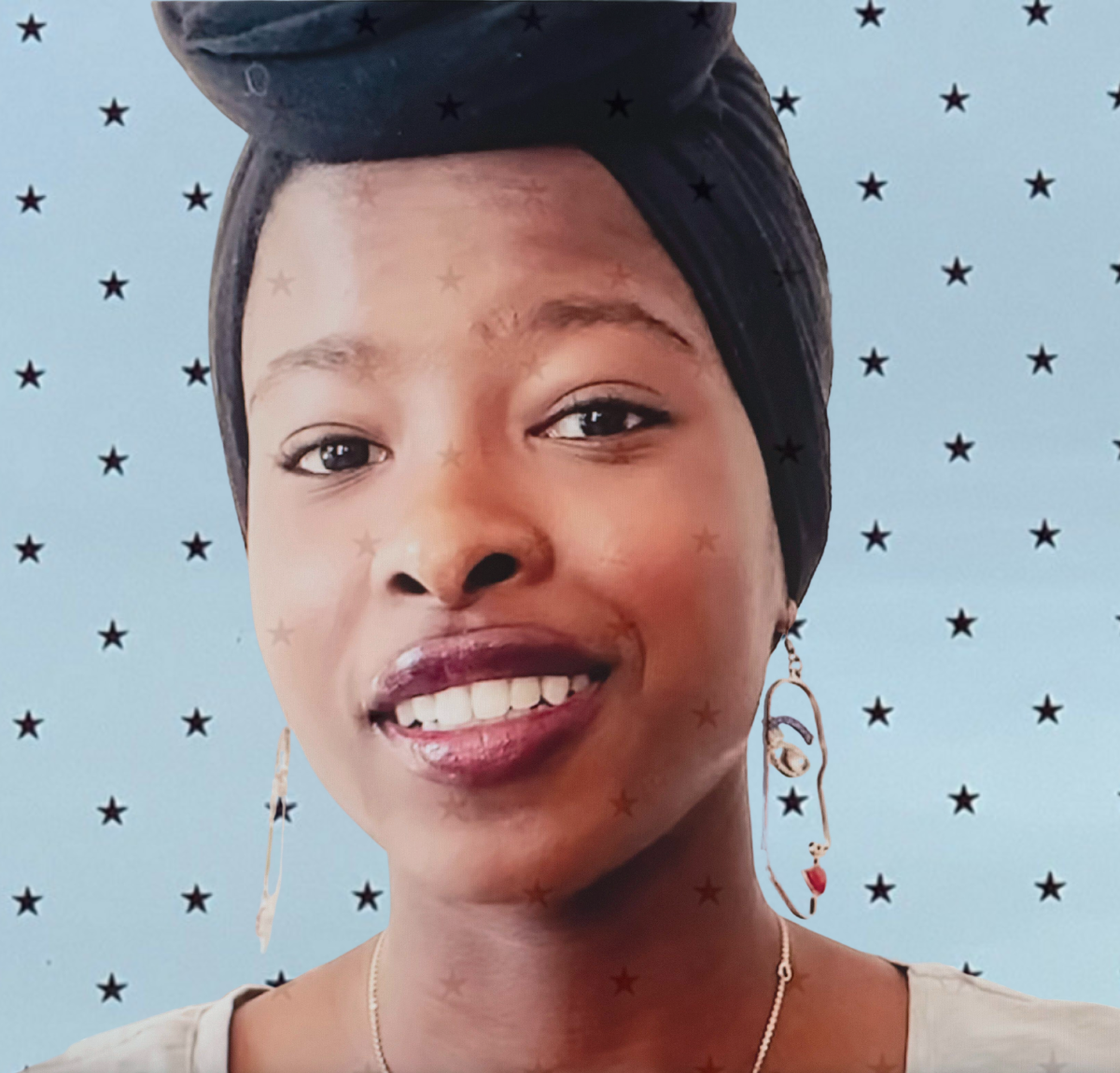"We close the divide, because we know to put our future first, we must first put our differences aside."
What gift would you give your country? What pieces of its grandeur and story would you display? Would you walk around and reflect on what you see at each turn? Exhale hope into its sails? Wag your finger at its lingering darkness?
In 1839, Henri David Thoreau drifted at leisure upriver, across the bounds of what was then America, and reflected on his country's inherent connective spirit. In 1962, novelist John Steinbeck drove across the country to seek the smell and taste of America and was disappointed when he couldn't step back into his pre-writer anonymity. In 2009, on the eve of President-elect Obama's inauguration, illustrator Maira Kalman trotted among America's most hallowed places and connected disparate pieces to celebrate America's contradictions and unity.
 Washington, D. C. "Hallelujah for the vast sea of nearly two million people holding madly fluttering flags in the bright noonday sun."
Washington, D. C. "Hallelujah for the vast sea of nearly two million people holding madly fluttering flags in the bright noonday sun." On January 20, 2021, at the 59th Presidential Inauguration commencing the Presidency of Joseph Biden and America's first female Vice-President Kamala Harris, Amanda Gorman (born March 7, 1998) stood before all of us and gave her country the poem "The Hill We Climb." Then and since, we looked at her, listened and praised her words, gestures, and exquisite color choices (has yellow ever been more beautiful?), and firmly fixed her in our nation's consciousness. Let's shift from her visage, this "skinny Black girl, descended from slaves and raised by a single mother," as she wrote about herself, for a second, to share her view.
 Poet laureate Amanda Gorman speaking at the 59th Presidential Inauguration at the U.S. Capitol Building.
Poet laureate Amanda Gorman speaking at the 59th Presidential Inauguration at the U.S. Capitol Building.Let's look at the America she sees; can we see it too?
We've braved the belly of the beast.
We've learned that quiet isn't always peace,
and the norms and notions of what "just is
Isn't always justice.
Is the tradition of viewing and reflecting on one country uniquely American? Rupi Kaur, a Canadian poet of pain-formed beauty, recalled that she knew kindness because it was never given to her. Some emotional alchemists mix their sorrows into an elixir of unspeakable compassion and rebellious joy.
Gorman's America is seen through such eyes; her America is one beloved yet-forming.
And yet the dawn is ours before we knew it.
Somehow, we do it.
Somehow, we've weathered and witnessed
A nation that isn't broken, but simply
unfinished.
In the years following World War One, a group of French patriots asked philosopher Simone Weil how France, a nation embattled by occupation and psychological diminution, could move forward successfully as a country and a people.
In The Need for Roots, Weil included a striking passage that clasps together a nation's duty with the care of its people.
We find in the history of all countries the most surprising ups and downs, sometimes following quite swiftly upon one another. But if the country is subdued by foreign arms, there is nothing left to hope for, save the possibility of a rapid liberation. Hope alone is worth dying to preserve when nothing else is left. Thus, although one's country is a fact, and, as such, subject to external conditions, to hazards of every kind, in times of mortal danger there is nonetheless an unconditional obligation to go to its assistance. But it is obvious that the people will show all the greater ardour in its defense the more they will have been made to feel its reality.From Simone Weil's The Need for Roots
A nation holds a responsibility, Weil effectively argued, to tend to all its people, to include them in its glory. Otherwise, why would its people rise and support the nation in its goals? Gorman equally pulls us into a collective responsibility for one another:
Let the globe, if nothing else,
say this is true:
That even as we grieved, we grew,
That even as we hurt, we hoped,
That even as we tired we tried.
That we'll forever be tied together.
Victorious,
Not because we will never again know
defeat,
But because we will never again sow
division.
I love the concept of a brotherhood of individuals; it is a shared belief that we are responsible for one another's lives. This concept is intrinsic to America's past and conceived future success because we cannot stand idly next to suffering brothers. And its hypocrisy, that all men are created equal except those of Gorman's color and ancestry is our most significant flaw. James Baldwin warned: "The oppressed and the oppressor are bound together within the same society."
Let it end today with each next move and decision we make. Let us join in Gorman's song of change.
 "I dream with the cries of tried-and-true dreamers" illustration by Loren Long for Amanda Gorman's Change Sings A Children's Anthem.
"I dream with the cries of tried-and-true dreamers" illustration by Loren Long for Amanda Gorman's Change Sings A Children's Anthem.Gorman sees us - quite honestly, we might all agree - as unformed, undone, unkept, utterly exhausted. Equally, she sees us held together as one. The unbreakable, unwindable tendons of love and care that connect us. Is there any more beautiful gift to give America than extirpating its wrong sides and reflecting its brightest self?
And yes, we are far from polished,
far from pristine.
But this doesn't mean we're striving to
form a union that is perfect.
We are striving to forge our union with
purpose,
to compose a country committed
To all cultures, colors, characters,
And conditions of man.
And so we lift our gazes not
To what stands between us,
We close the divide,
Because we know to put
our future first, we must first
put our differences aside.
We lay down our arms
So that we can reach our arms out to one
another. We seek harm to none, and harmony for all.
 "There Are No Wrong Seasons" Illustration by Natasha Rauf. Rauf is a Portland-based illustrator whose work represents different aspects of womanhood, creating deeper connections with ourselves and finding our place in the world after failure.
"There Are No Wrong Seasons" Illustration by Natasha Rauf. Rauf is a Portland-based illustrator whose work represents different aspects of womanhood, creating deeper connections with ourselves and finding our place in the world after failure.Try as you are tired, step into the past and repair it.
We will rebuild, reconcile, and recover,
In every known nook of our nation,
In every corner called our country,
Our people, diverse and dutiful.
We'll emerge, battered but beautiful.
When the day comes, we step out of the
shade,
Aflame and unafraid.
The new dawn blooms as we free it, For there is always light,
If only we're brave enough to see it,
If only we're brave enough to be it.
The purpose of poetry has been manifold throughout human history: a beauty that moves aside the pale to a language that expresses the inexpressible. Poetry exists to encourage slowness, extend our vocabulary, and, above all, elevate consciousness. To expand our biologically formed yet socially numbed empathy.
 Amanda Gorman in Los Angeles, 2021.
Amanda Gorman in Los Angeles, 2021.At the very least, poetry extracts some commonality we all carry, some human element. It elevates it to a transcendent image that is so glorious, so replete that it barely resembles its original form. And in hearing it, we reach something new as well.
Let's connect ourselves across "The Hill We Climb," a poem that heralds the current century like T. S. Eliot's "The Waste Land" did for the last century. Let's connect through the music of Gorman's rhythm and passion over the light that is the brightness of her illuminated America. Warm your face in the rising dawn.

